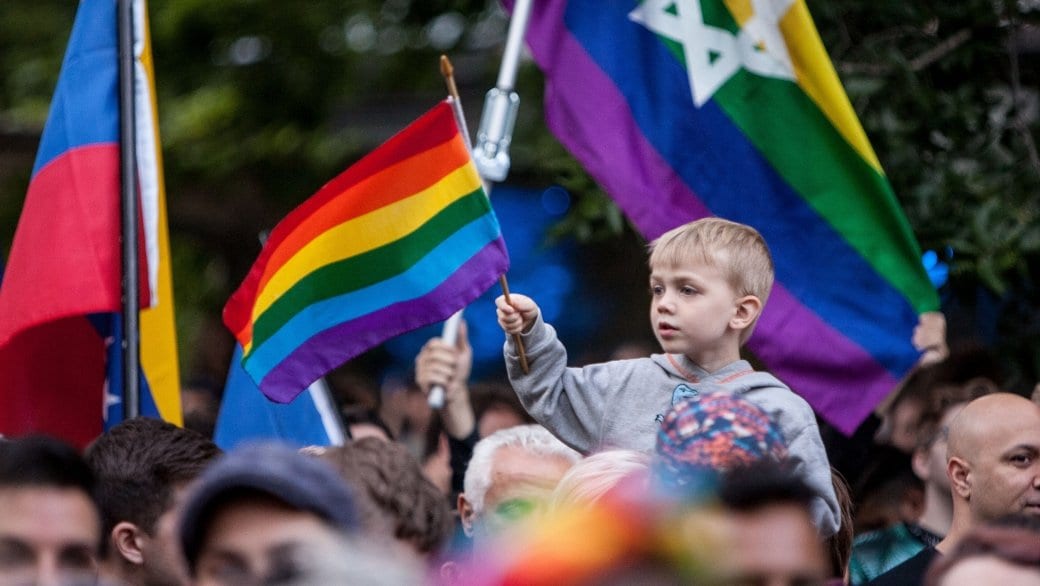The tragedy in Orlando left dozens dead and injured, and LGBT communities worldwide in shock. Between the factors of LGBT hatred and internalized homophobia, mental illness, gun control, debate over the influence of religion, national security and the loss of more people of colour, the world has had a lot to emotionally unpack.
While many factors have been discussed at length elsewhere and there’s no one magical solution, attitudes about sexuality were indisputably a factor. Some reports have alleged that the gunman, Omar Mateen, was a closeted homosexual raised by a homophobic family. Others have painted a picture of a man with deeply entrenched issues and terrorist sympathies from a young age who was involved with Orlando’s LGBT community in order to plan his attack. Regardless of which scenario — if either — is true, conversations about homophobia have never been more prevalent.
Maria Gurevich, associate professor of psychology at Ryerson University, says there are a myriad of conflicting emotions in people struggling with their own sexuality. “[They] may experience a range of feelings from shame to confusion to anxiety to a sense of persecution or paranoia because they may be constantly afraid if you’re constantly vigilant about the fact that you may be found out,” she says. She also lists depression and substance abuse as common occurrences among closeted gay men.
In a 2010 editorial in Psychology Today, Christopher Ryan, co-author of the New York Times bestselling book Sex at Dawn: How We Mate, Why We Stray, and What it Means for Modern Relationships was less cautious with his words. “If expression of sexuality is thwarted, the human psyche tends to grow twisted into grotesque, enraged perversions of desire. Unfortunately the distorted rage resulting from sexual repression rarely takes the form of rebellion against the people and institutions behind the repression.”
“Internalized homophobia is a strong thing. When you’re around people that don’t support you people do desperate things,” says Troy Jackson, co-founder and president of the Toronto Unity Mosque.
“As queer people, it doesn’t matter your religion or where you are. There’s always going to be some degree of phobia, some degree of intolerance towards LGBTIQ people. We are often taught to hate ourselves,” says El-Farouk Khaki, Jackson’s husband and well-known immigration and refugee lawyer in Canada.
To be clear, Mateen is a monster who deserves no sympathy. Plenty of people struggle with their sexuality without killing anybody. Sexual repression alone doesn’t drive one to commit mass shootings, and the factors that led to this tragedy are complex. There are, however, steps that American institutions could take to prevent further tragedy. Based on the frequency of mass shootings in the United States, Mateen’s actions aren’t an outlier, so solutions are required from a variety of directions.
What can be done to prevent personal struggles like Mateen’s from becoming public safety disasters? Ontario’s recently updated sex-ed curriculum could serve as a model for other places. The Ontario government made a big move last year when they updated the province’s health curriculum to include positive mentions of homosexuality and gender diversity starting in Grade 3. Sam Hammond, president of the Elementary Teachers Federation of Ontario, says this type of education is an important part of quashing “myths that are out there, and those fears that some people obviously still adhere to. Based on what’s happened in Orlando we will double our efforts.”
Khaki believes education is a group obligation. “Kids don’t have prejudices. It’s adults that have prejudices that they teach their kids,” he says.
During the height of the controversy over Ontario’s curriculum change in 2015, a Toronto educator and mother named Rabea Murtaza founded the group Muslims for Ontario’s Sex-Ed Curriculum. Murtaza says Mateen could have benefitted from such education. “Sex education is central to building a more peaceful world, a more equitable, peaceful, loving world,” she says.
None of the experts interviewed for this piece disagreed that LGBT-inclusive sex-education worldwide would psychologically benefit young people who are struggling to come out and young people beginning to form ideas about sexuality. This could prevent cycles of violence toward others and toward the self.
In the wake of this tragedy Jackson says, while the attack can’t be reversed, “the retort starts after the bad. The retort that’s happening right now is quite quick, people actually having those talks within their mosques. It is Ramadan and it is Pride. Perhaps this is the pressing point that will lead to it. I’ve talked to more people on a heart level in the past couple of days than I have in a long time.”
Confluent factors contributed to this unspeakable tragedy, but it’s possible, regardless of whether this was a hate crime by a non-LGBT person or a lashing out by a closeted gay man, that if so many people weren’t so messed up about sexuality, one of the biggest factors could have been taken off the table.

 Why you can trust Xtra
Why you can trust Xtra


